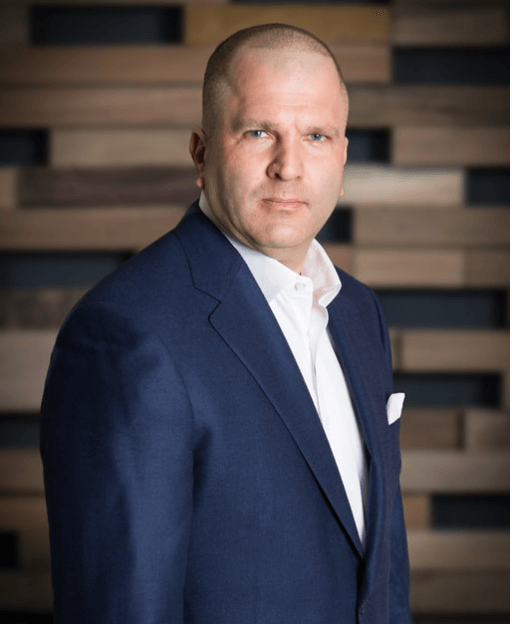If you’re reading this then I have bad news for you. You’re just like me. You may not walk, talk, or dress like me, but if you’re reading this, then there’s a fair chance you’re every bit asobsessed with exercise and fitness as I am.
That’s not necessarily a bad thing most of the time. It means you’re probably quite healthy and will live a long life. But sometimes it’s going to get difficult. And these darker times are going to come immediately after your greatest moments.
Life is like that. Every peak must be followed by a valley, or it wasn’t a peak.
The Post-Event Plummet
Training is a little like being immunized. You are given a small dose of the disease so you can build up a resistance to it. But then, if your training is well planned, you’ll be given a slightly larger dose and be forced to recover from that. And this goes on and on, with you receiving successively bigger doses until you find yourself at the start line of something that scares the crap out of you.
That thing that scares the crap out of you is a good thing. Challenge builds strength, both of body and mind. But that big challenge is going to leave you feeling flat afterwards. The reason why is pretty simple. As you get close to the event, the body hides all the fatigue from training with adrenaline. Day after day your body goes to the well and draws more out so you can keep pushing forward. But once it’s all over and your body doesn’t need to do that? Boom. Flat on your face.
And it doesn’t just happen after big events. When I first got involved with the RKC, I used to think my fatigue post-event was due to jet lag from having to fly back and forth to the United States for every event, coupled with the high output over the weekend. But when I started teaching and having exactly the same experience, I realized the physical side of things had little to do with how I was feeling.
The Purpose of the Off-Season
Back in the days, before year-round competition, athletes had this thing called the off-season. You might have heard about it? They would finish their last game or event of the season, then take a while off to let the body rejuvenate.
“The longer the event, the longer the recovery needs to be.”
One of the greatest swimmers in the world, Ian Thorpe, would take the entire year after the Olympics off from serious training and competition. During this time he’d still swim a bit (and considering the mileage of elite swimmers “a bit” probably is still more than most of us will ever do), he’d engage in other fitness activities like running, and he’d go out and have a social life.
Team sports still manage to encourage their players to have an off-season, although it’s getting shorter and shorter, too. It’s these deliberate, post-season breaks that allow the players to freshen up mentally, as well as physically.
The thing about mental stress is that you can’t really feel it. When your muscles are tired, it’s pretty obvious. But when your mind is tired it can be hard to tell.
CNS fatigue can take as much as five times longer to recover from than muscular fatigue, so if you just did something epic and your legs took five days to feel normal again, it might take three weeks for your mind to freshen up completely. And this is exactly why even though you feel fantastic physically after a great personal-record performance, you fall flat when you try to hit it again too soon.
Plan Your Year Properly
In my group of colleagues, there are a lot who are all about the same age as me, and we share lengthy training histories, too. Just like me we’ve all kept looking for new challenges along the way and kept pushing where we’ve been able to. And that’s important because these challenges help us stay active and give us motivation to stay in shape.
“CNS fatigue can take as much as five times longer to recover from than muscular fatigue, so if you just did something epic and your legs took five days to feel normal again, it might take three weeks for your mind to freshen up completely.”
The bad part about getting older is that you just don’t get many days each year where you can push yourself right to the red zone. And each one requires significant mental and physical rest afterwards. There have been some excellent posts on Breaking Muscle recently about how to avoid burn out, and the number one way is to thoughtfully plan your year out. Give yourself time off after an event you know will be all in – and no, a week won’t cut it. The longer the event, the longer the recovery needs to be. I know after Ironman it took me about eight months to feel right again.
Change Events With the Seasons
The easiest way I know of to make sure you avoid burning out, which will ensure you’re able to keep plugging away at health and fitness no matter your age, is to change events with the seasons. You know, just like we had to as kids when we’d play different sports in summer and winter. The change of activities will use new muscles, challenge you in different ways, and help the body and mind freshen up.
We spend so much time speaking about developmental patterns these days and reference childhood learning, yet when it comes to the way we structure our own training, we ignore what we have our kids do.
Use the off-season to learn a new skill, spend time with loved ones you ignored during heavy competition training (and thank them for all their support, laundry, and provision of food when you were too bombed to do it all), and understand that it is natural to go through this trough of post-event apathy. If you take a genuine break, you will come back better and fresher, ready to hit a new peak, so use that time wisely and don’t rush straight back in the gym.










